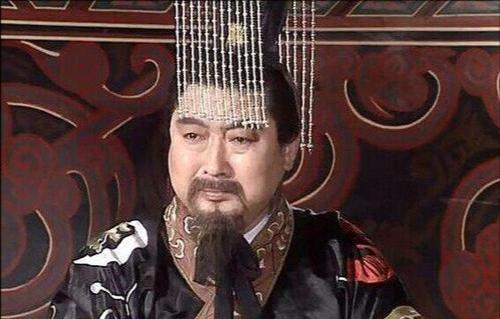The long river of history is running endlessly, there are calm waves, there are also waves, let Xiaobian take you into history and understand history.
During the Three Kingdoms period, the Shu Han was the weakest, and Cao Wei, as the most likely force to unify the world, did not initially focus on attacking the Shu state. Taking advantage of the fact that the main energy of the State of Wei was focused on dealing with Eastern Wu, Zhuge Liang formulated a policy and allowed the Shu army to rest and recuperate for a period of time, and then began the Northern Expedition. Although there were some successful battles in several Northern Expeditions, each Northern Expedition ended up without success.

Along with the failure of the Northern Expedition, the national strength of the Shu state became more and more empty, and the burden on the people became greater and greater. When Zhuge Liang was alive, he took some internal measures to develop the economy and expand the fields, and the national strength of the Shu state would not be too depleted. After Zhuge Liang's death, Jiang Wei continued his legacy and carried out more than a dozen Northern Expeditions, most of which were successful. But this did not improve the weak state of the Shu state, the people's lives became more and more poor, and more and more people could not even eat. Later, the State of Wei shifted its focus to dealing with the State of Shu, and as a result, a major attack was difficult for the State of Shu to resist, and Liu Chan was forced to choose to surrender. Why did the Shu state obviously have a certain resistance strength at that time, but Liu Chan chose to surrender?
In fact, if Liu Chan did not surrender, it was not that there was no way back. At that time, the Wei army reached Chengdu, and Liu Chan could also defect to Nanzhong or surrender to Eastern Wu. However, if you think about it carefully, these two retreats are no better than surrendering to the State of Wei. If he had defected to Nanzhong, many years had passed since Zhuge Liang's death, and the barbarians in Nanzhong were no longer as subservient to the Shu state as they had been. When Liu Chan moved the imperial court, the burden on the people in Nanzhong was even greater, and the people in Nanzhong, who were originally dissatisfied with the rule of the Shu state, might choose to rebel and rebel, so that Liu Chan would fall into a more dangerous situation. There is little difference between surrendering to Eastern Wu and surrendering to the State of Wei, and Eastern Wu's strength is not as good as that of the State of Wei, and it is better to choose to surrender to a weak force than to surrender to the State of Wei, so that it can still be treated kindly.
Even if Liu Chan didn't want to surrender in his heart, at that critical juncture, he couldn't make other choices. The Wei army had all hit the capital of the Shu state, and choosing to retreat would obviously make the Shu state fall into a greater passive situation, so it would be more difficult to restore the country. Coupled with the fact that Liu Chan was not a fighting emperor, he attached more importance to his own interests, and rather than fighting with Wei Guoyu to the end, it was better to choose to surrender. It seems that Liu Chan's approach made Zhuge Liang's painstaking efforts burn, but Zhuge Liang was only to fulfill Liu Bei's long-cherished wish, and as for whether he could recover the Central Plains, it was another matter. Zhuge Liang, as a loyal and loyal subject, had already contributed his best efforts to Shu Han.
Zhuge Liang could hardly reverse the fate of the Shu kingdom, let alone Liu Chan. Perhaps Liu Chan chose to surrender precisely because he understood this, and if he did not do so, he might eventually erupt into a domestic uprising, and it would be difficult for him to obtain conditions for kindness. In fact, there are some such seemingly unreasonable things in the Three Kingdoms, because there is no record of them, and it is difficult to know the reasons for them. In particular, the Shu kingdom has not yet set up a historian, so some things about the Shu kingdom are even more confusing.
Whatever the real reason for Liu Chan's surrender, the destruction of the Shu state was inevitable. The combined strength of Shu Han and Eastern Wu could be equal to that of the State of Wei, and in such a gap, unless Shu Han and Eastern Wu united into one country, one of them would eventually be destroyed first. The State of Wei was unable to destroy the State of Wu, so it pointed its spearhead at the State of Shu, and just at that time, the State of Shu had not yet recovered its strength, and the Wei army took advantage of this opportunity to attack the State of Shu in a big way. Even if the Shu kingdom had Jiang Wei to support it, it was ultimately powerless to return to heaven.
Well, today's sharing ends here, and we'll see you next time